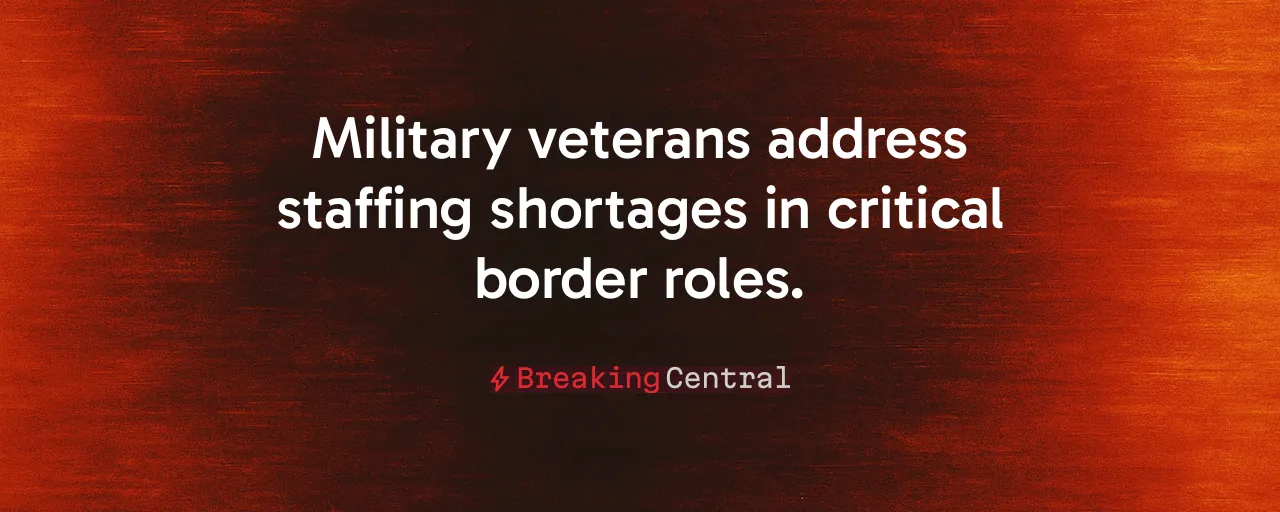Borders in Crisis Need Heroes
Our borders are under siege. Rising migrant flows and security threats demand action. The Department of Defense's new agreement with the Department of Homeland Security delivers a solution by placing transitioning service members into U.S. Customs and Border Protection and Immigration and Customs Enforcement roles through the SkillBridge program. This move harnesses the skills of America's veterans to restore order and protect our nation.
Veterans offer unmatched discipline and training. With CBP short over 1,700 agents and ICE facing staffing gaps, this partnership taps a proven talent pool. Why search for untested recruits when those who've defended our freedoms can step in? The logic is simple, and the need is urgent.
Veterans Bring Elite Skills
Through SkillBridge, service members spend their last six months of duty training with civilian employers like CBP and ICE, all while receiving military pay. This setup gives agencies access to candidates with active security clearances and leadership experience. A 2025 study found veterans save $1,252 per hire and reduce onboarding to 33 hours, delivering efficiency government programs rarely achieve.
Over one-third of CBP's 60,000 employees are veterans, whose tactical expertise suits high-stakes border work like drug interdiction and migrant processing. Unlike new hires needing extensive training, veterans start strong. Why wouldn't we prioritize them for roles critical to national security?
Compare this to standard hiring: screening 750,000 applicants to find 5,000 viable candidates costs $40,000 per hire. Polygraphs and vetting create delays, leaving borders exposed. Veterans, with clearances in hand, bypass these hurdles and deploy quickly, addressing urgent staffing needs.
Opponents' Arguments Fall Flat
Some claim directing veterans to border enforcement risks militarizing immigration or overburdening them with stressful roles, citing CBP's 156 employee suicides from 2007 to 2022. Yet veterans, hardened by combat and high-pressure missions, bring resilience to these challenges. With robust mental health support, they're well-suited for the job.
Others argue this focus limits veterans' career options, funneling them into enforcement. But SkillBridge empowers service members to choose their path, with CBP and ICE as compelling options among many. The real problem lies in the 45 disjointed transition programs that leave half of veterans underemployed. Prioritizing DHS roles offers purpose-driven work and a clear path forward. These objections lack substance when weighed against the benefits.
Building on Proven Partnerships
This initiative draws on decades of collaboration between DHS, DoD, and other agencies. Programs like Operation Warfighter, launched in 2005, and Transition Assistance have long connected veterans to federal roles. DHS's 2024-2028 strategy expands these efforts with shared hiring systems and joint assignments. The 2025 DoD directive prioritizing CBP and ICE internships strengthens this pipeline, placing veterans where they're needed most.
The border crisis demands sustainable solutions. Migrant encounters have spiked since 2019, and CBP's reliance on $2 billion in temporary duty rotations is unsustainable. Veterans provide a long-term answer, applying their military-honed skills to a national priority. Their service continues to shape a secure future.
A Call to Action
This DHS-DoD partnership honors veterans by offering careers that protect the nation while addressing critical border staffing shortages. To maximize its impact, lawmakers need to expand SkillBridge, bolster mental health resources for CBP and ICE employees, and streamline hiring processes to deploy veterans faster.
Veterans' skills, clearances, and dedication make them indispensable for border security. Their ability to close staffing gaps and deter threats is proven. By investing in this strategy, we can restore safety and order. Doesn't America deserve borders as strong as its heroes?
The path is clear. Our veterans are ready to serve again, and our borders need their strength. This program is a bold step toward a safer nation. Let's ensure it succeeds.
